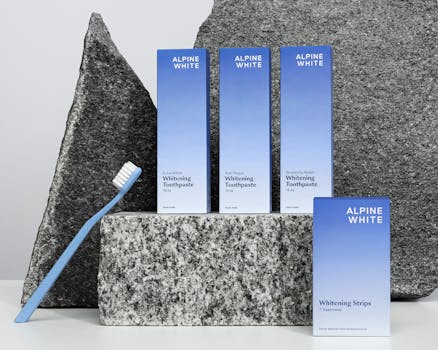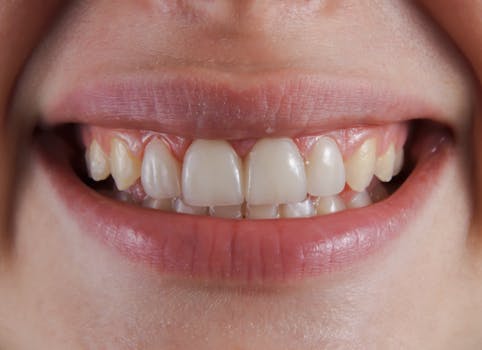Whiter teeth with activated charcoal
Activated charcoal (carbon) is a particularly fine-grained carbon that is very porous and has a large inner surface area. Among other things, activated carbon is used in medicine, the treatment of water and wastewater, air conditioning and ventilation technology, and chemistry.

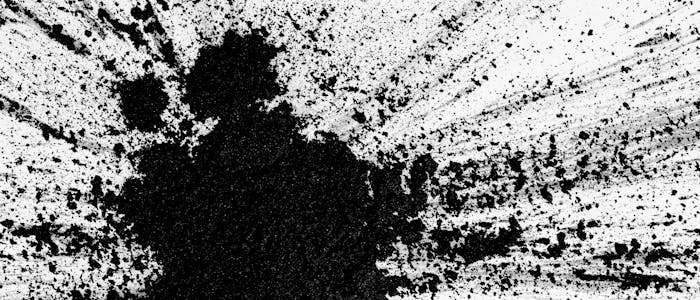
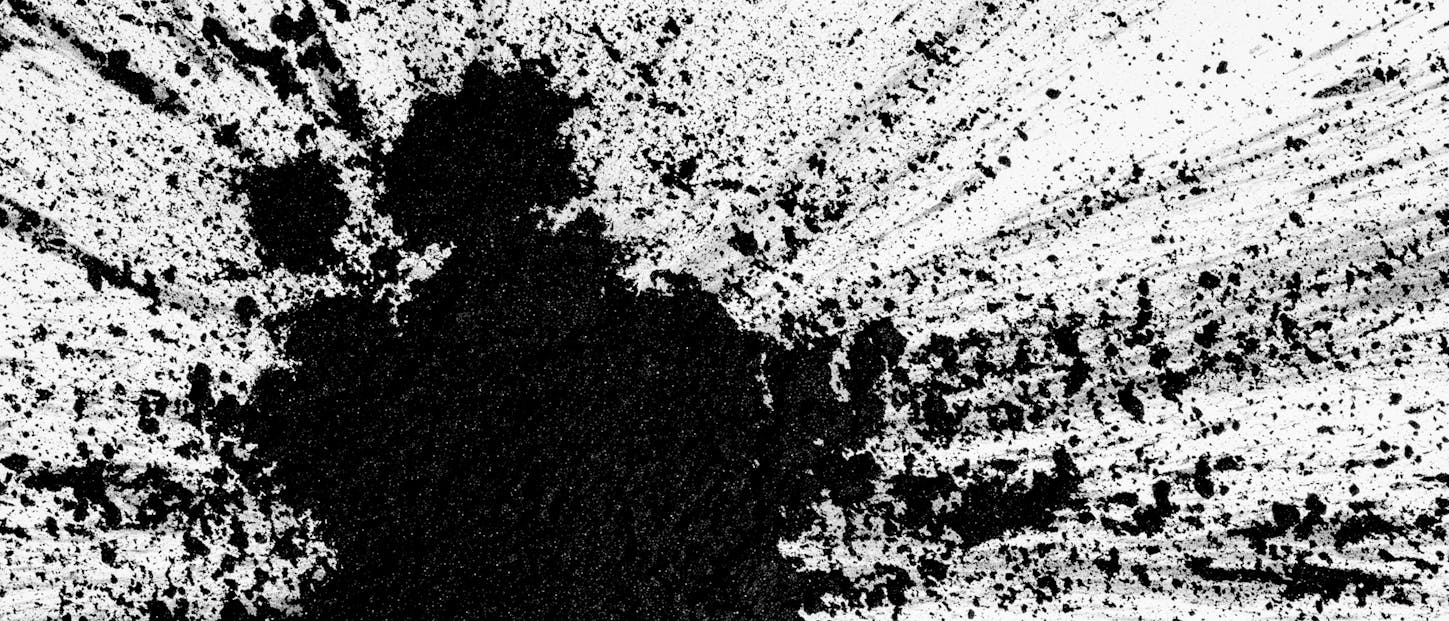
Activated charcoal is usually sold in either powder, as supplements or encapsulated. Activated charcoal consists mainly of carbon. The proportion of carbon is usually over 90%. Activated charcoal has a very porous structure. Like a sponge, the individual pores are interconnected.
To better understand how large the inner surface of activated charcoal is, one can keep in mind that the inner surface of two grams of this substance is comparable to the size of a football field.
What is the history of activated charcoal?
Activated charcoal is one of the oldest known remedies used in medicine. The effect of active charcoal was already known in ancient Greece and Egypt. Even today, this substance is used in many ways and performs well in medicine and dental care, among other things. Moreover, it is used to treat many types of oral poisonings such as phenobarbital and carbamazepine
What is activated charcoal?
Activated charcoal is charcoal that has been oxygenated at very high temperatures to make it more porous. It consists mainly of carbon and is combustible. The pores are interconnected and open-pored like a sponge. Four grams of activated carbon are roughly equivalent to the area of a football field.
The pore sizes and pore size distribution are divided into four orders of magnitude: submicron pores (< 0.4 nm), micropores (0.1 to 2 nm), mesopores (also called transition pores, 2 to 50 nm) and macropores (> 50 nm).
The macro- and mesopores form the access routes for liquids or gases to the interior of the coal and mainly participate in diffusion and mass transport processes into deeper areas of the grain. The effective surface area of carbon and the associated adsorption properties are determined by the size of this area.
Where does activated charcoal come from?
Activated charcoal can be obtained from various substances. Mineral, animal, vegetable and petrochemical substances can serve as a basis. Typical raw materials for the extraction of activated carbon are, for example, nutshells, coconut shells, wood, lignite and hard coal, peat and plastics.
Activated charcoal, which is produced based on plant starting materials, is also referred to as vegetable coal. Animal charcoal, on the other hand, is of animal origin and can be produced from the blood or bones of animals, for example. For the production of charcoal powder, a process with dehydrating agents is usually used.
These dehydrating agents can be, for example, phosphoric acid or zinc chloride. 500 to 900 °C are necessary to obtain medicinal charcoal. Alternatively, activated charcoal is obtained by dry distillation.
The result of both production processes is the so-called raw activated charcoal. This is then further treated by oxidation at 700 to 1000 °C. The activated charcoal is then purified.
Air, carbon dioxide or water vapour are used here. To adapt the properties of charcoal powder even better to the respective application, additional chemicals can be added.
For filter charcoal - as required for the filters in gas masks, for example - additional metal salts can be used.
What is the use of activated charcoal?
In medicine, activated charcoal is primarily known for its property as a detox agent. In cases of poisoning, medicinal charcoal can help to bind the absorbed toxins in the body and remove them from the organism. However, it should not be used in cases of poisoning when corrosive substances such as alkalis (lyes) and strong acids, iron, boric acid, lithium, petroleum products (e.g. cleaning agents, coal oil, fuel oil, petrol, paraffin, paint thinner) or alcohols have been swallowed, as it does not prevent these poisons from being absorbed into the body.
However, a doctor or healthcare professional should always be consulted for medical advice.
Activated charcoal as support for the digestive tract?
Active charcoal is also used for diseases of the gastrointestinal tract. Harmful substances that have accumulated in the digestive tract are transported out of the body more quickly thanks to activated charcoal. It is also used in emergency rooms to treat drug overdoses.
Thanks to its adsorption capacity, activated charcoal is mainly used for medical reasons for diarrhoea treatment and poisoning. The substance can be used to treat overdoses of both prescription medicines and over-the-counter medicines such as aspirin, acetaminophen and tranquillisers.
Studies indicate that activated charcoal may be beneficial if consumed up to 4 hours after ingestion of delayed-release medications, medications that slow digestion, and high doses of medications. The subsequent intake of a laxative can accelerate the excretion of the bound toxins and prevent constipation.
Other areas of application
In addition to medical applications, the substance is also used for water filtration. Other areas of application include cabin air filters in the automotive industry and use in sorption pumps.
Activated charcoal is also used as an adsorbent. Its adsorption capacity can remove unwanted color, odour and taste substances from liquids, gases and vapours.
Charcoal in cosmetics
Activated charcoal is also increasingly used in cosmetics. Today, charcoal powder is already a component of numerous cosmetic products. The black substance is added to masks and peelings, for example. Furthermore, you can buy supplements either in powder or pill form.
In skin care products, activated charcoal is said to provide an even, purer complexion. Charcoal powder is also added to shampoos and toothpaste. In toothpaste, Charcoal Powder helps to achieve brilliant white teeth, and in shampoos, the substance prevents the scalp from becoming greasy again too quickly.
It is also used for high cholesterol, and to prevent bloating and hangovers, but there is no solid scientific evidence for these treatments as to whether it really helps.
Last but not least, the effect of activated charcoal is also used to detox the body - for example as an addition to a smoothie - and to whiten the teeth.
How does bleaching with activated charcoal work?
Bright white teeth stand for beauty, vitality and purity. A beautiful smile with white teeth has a pleasantly attractive effect. Activated charcoal products are also great for whitening teeth.
Activated charcoal has the property of binding substances very well. This also applies to impurities on the teeth. With the help of activated charcoal, unpleasant discolorations are removed and the teeth are naturally whitened.
Residues, for example, no longer stand a chance after drinking tea or coffee. Would you like to whiten your teeth a little and beautify your smile naturally? We offer products with and without activated charcoal that will make your teeth shine.
Are you scared of any side effects?
Adverse effects of activated charcoal are more likely when it is used on a long-term basis to treat conditions like excess gas, constipation and black stools. However, do not combine activated charcoal with medicines used for constipation (cathartic agents such as sorbitol or magnesium citrate). This can lead to an imbalance of electrolytes and other problems.
Moreover, do not use activated charcoal if you have a blockage of the intestines. Also, if you have a condition that slows the passage of food through the intestines, ask for medical advice before using activated charcoal.
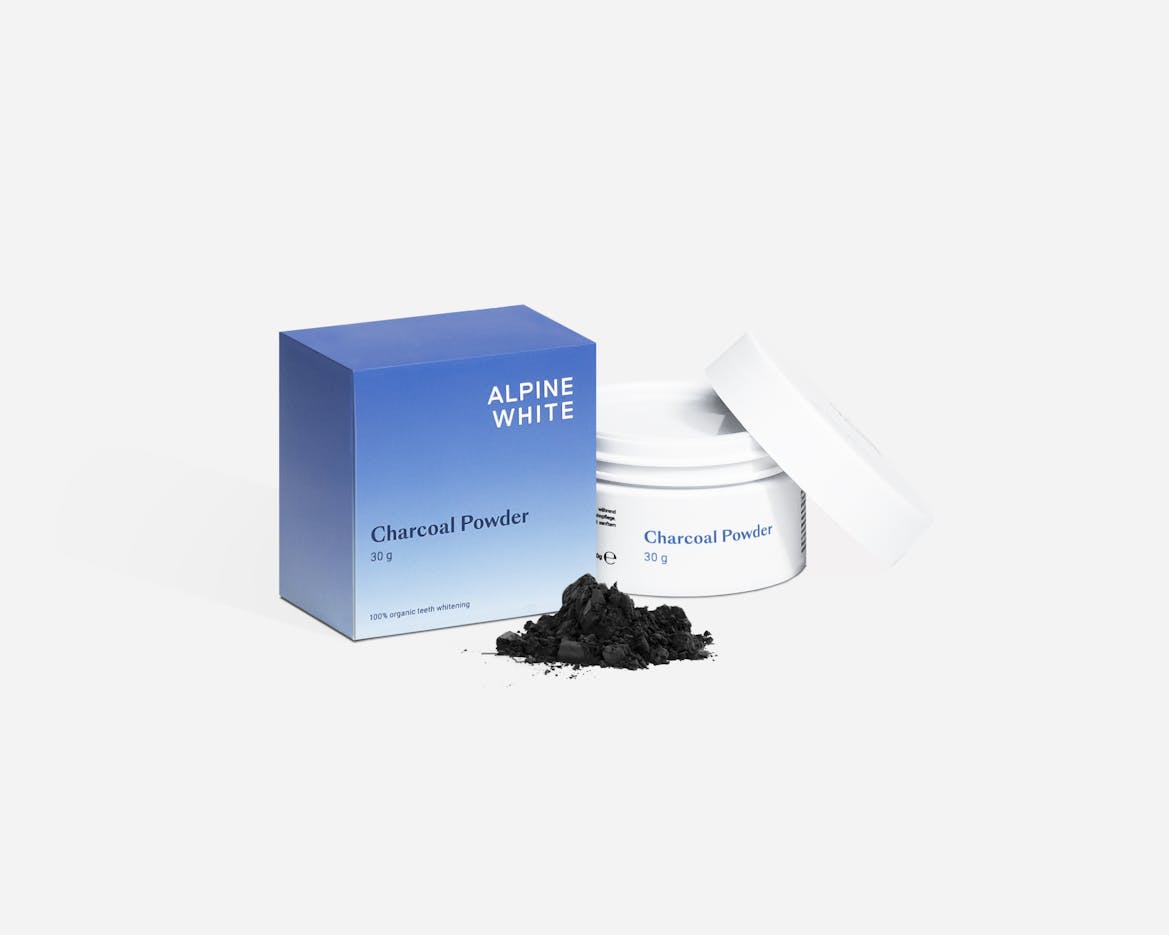
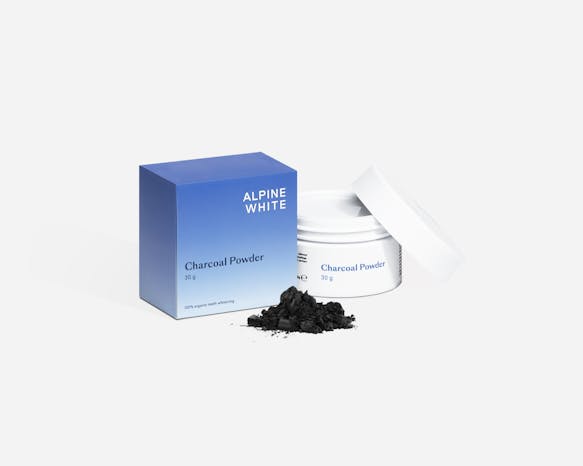
Get your natural teeth whiteness back. Activated charcoal powder for teeth cleaning. 30g.
White teeth with Charcoal Powder from Alpine White
You can buy Charcoal Powder in our shop. One can last for several months and helps you to keep your teeth permanently white. This makes it the perfect complement to whitening, e.g. with the Whitening Strips.
How it works:
- Dip the toothbrush into the Charcoal Powder before brushing.
- Work the charcoal into the front surface of the teeth for approx. 2 minutes with the toothbrush without applying firm pressure.
- Repeat the application 7 days in a row to whiten the teeth significantly.
- Use the Charcoal Powder 1-2 times a week to keep your teeth white.
The Charcoal Powder effectively removes stains as well as deposits and restores the natural whiteness of your teeth.

